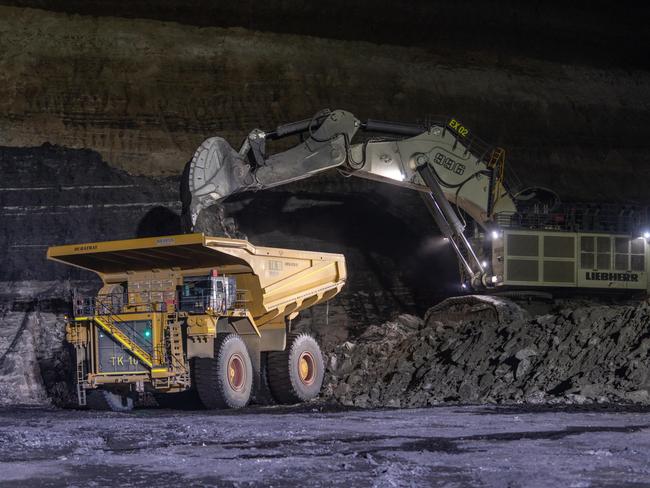Editorial: Be upfront with the future of coal
Any transition away from fossil fuels needs to be handled deftly and with sensitivity, writes the editor. This is not only about emissions, it is about people’s lives and this should never be forgotten.
Opinion
Don't miss out on the headlines from Opinion. Followed categories will be added to My News.
Queensland is a state that historically had a significant portion of its wealth and prosperity built on the back of coal and other resources.
Fortuitously, former Premier Peter Beattie had the foresight to drive a push to expand the state’s economic fortunes beyond resources and tourism into the knowledge-based economy.
As the world transitions away from fossil fuels, this move more than 25 years ago has and will continue to pay dividends.
But the resources sector, including coal, continues to be an important industry for the state, not only for its economic value but for the jobs and livelihood it provides to tens of thousands of families.
It means that any transition away from fossil fuels needs to be handled deftly and with sensitivity.
This is not only about emissions, it is about people’s lives and this should never be forgotten.
Correspondence by the state’s resources department, newly obtained by the Australian Conservation Foundation, revealed how quickly the transition is set to take place.
It shows that there could be only 12 coal mines still operating after 2050, the year Australia and much of the world aim to reach the net-zero emissions target.

It also shows 61 coal mines in the state have indicated to the state government that they will have ceased operations by 2050 – with all theses figures dependent on a range of factors including coal price, rate of production and future expansions.
The Australian Conservation Foundation accused the state government of “walking both sides of the street” on the issue, pushing ahead with stronger targets for power produced by renewables in the state while continuing to export fossil fuels.
In a way it is correct, but it is a narrow and difficult street for any government to walk.
It cannot simply switch off the biggest economic driver to these regions overnight or even within a decade without significant impacts.
It is also a challenge which governments, state and federal, need to be upfront about with voters, especially those in coal communities.
But Right to Information searches should not be how these communities learn about the future of their careers and prosperity of their regions
The federal government is quite fond of saying that Australia will continue to export coal for as long as there is demand for it from our overseas trading partners, with the future to be determined in the boardrooms of Tokyo and Seoul rather than in Canberra.
While this may have been enough to get the government through the election, though it failed to pick up seats in regional Queensland, it is time to be upfront with the public.
Not only about the timing of any transition, but how it will be done, the costs involved and who will be impacted.
Demonising the resources sector – as Premier Annastacia Palaszczuk appeared to last week by boycotting the Queensland Resources Council’s annual lunch – serves no purpose.
The sector is still vital not only to the state’s economic interests but also to keeping the lights on.
But ignoring a coming transition, driven by international demand, is equally dangerous.




